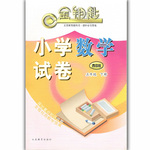题目内容
E
"Opinion" is a word that is used carelessly today. It is used to refer to matters of taste, belief, and judgment. This casual use would probably cause little confusion if people didn’t attach too much importance to opinion. Unfortunately, most do attach great importance to it. "I have as much right to my opinion as you to yours, '' and ''Everyone’s entitled(授予…权利) to his opinion, '' are common expressions. In fact, anyone who would challenge another's opinion is likely to be branded intolerant.
Is that label(标签)accurate? Is it intolerant to challenge another's opinion? It depends on what definition of opinion you have in mind. For example, you may ask a friend ''What do you think of the new Ford cars?" And he may reply, "In my opinion, they're ugly." In this case, it would not only be intolerant to challenge his statement, but foolish. For it's obvious that by opinion he means his personal preference, a matter of taste. And as the old saying goes, ''It's pointless to argue about matters of taste."
But consider this very different use of the term, A newspaper reports that the Supreme Court has delivered its opinion in a controversial case. Obviously the justices did not state their personal preferences, their mere likes and dislikes. They stated their considered judgment, painstakingly arrived at after thorough inquiry and careful consideration.
Most of what is referred to as opinion falls somewhere between these two extremes. It is not an expression of taste. Nor is it careful judgment. Yet it may contain elements of both. It is a view or belief more or less casually arrived at, with or without examining the evidence.
?? Is everyone entitled to his opinion? Of course, this is not only permitted, but guaranteed. We are free to act on our opinions only so long as, in doing so, we do not harm others.
72. Which of the following statements is TRUE, according to the author?
A. Everyone has a right to hold his own opinion.
B. Free expression of opinions often leads to confusion.
C. Most people tend to be careless in forming their opinions.
D. Casual use of the word "opinion" often brings about quarrels.
73. According to the author, who of the following would be labelled as intolerant?
A. Someone who turns a deaf ear to others' opinions.
B. Someone who can't put up with others' tastes.
C. Someone who values only their own opinions.
D. Someone whose opinion harms other people.
74. The new Ford cars are mentioned as an example to show that ________.
A. it is foolish to criticize a famous brand
B. one should not always agree to others' opinions
C. personal tastes are not something to be challenged
D. it is unwise to express one's likes and dislikes in public
75. Considered judgment is different from personal preference in that ________.
A. it is stated by judges in the court
B. it reflects public like and dislikes
C. it is a result of a lot of controversy (争论,争议)
D. it is based on careful thought
72---75 ABCD

 金钥匙试卷系列答案
金钥匙试卷系列答案